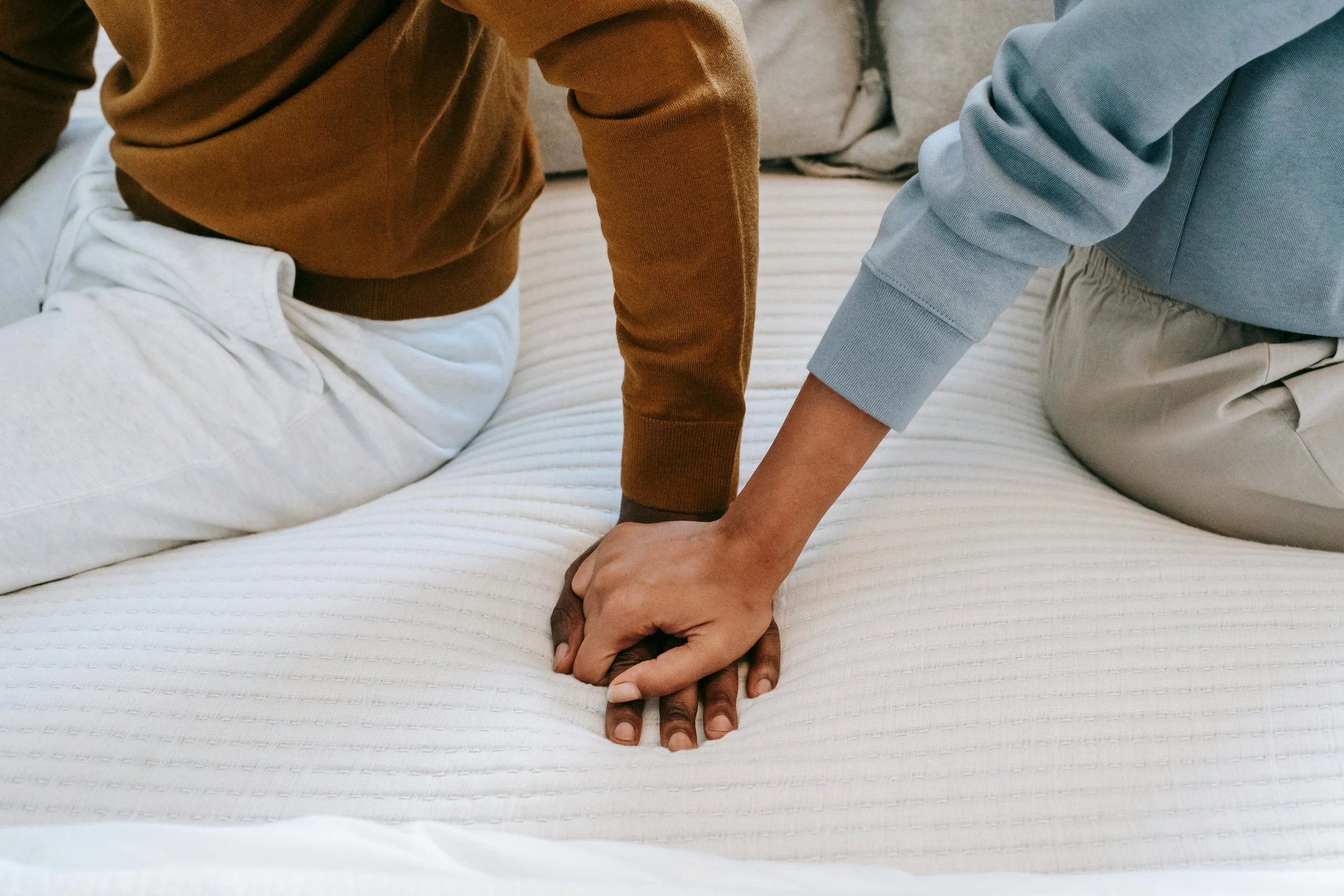What to Expect in Couples Therapy (and How to Make the Most of It)
If you’ve been thinking about couples therapy but aren’t sure what to expect, you’re not alone. Many couples delay reaching out because they’re worried therapy will be uncomfortable, one-sided, or full of blame.
The truth? Couples therapy isn’t about pointing fingers. It’s about creating understanding. It’s a space where both of you can slow down, feel heard, and start learning new ways to connect.
As a couples therapist, I want to demystify what actually happens in therapy so you can walk in feeling more confident and prepared.
What Happens in the First Session
The first session is usually about getting to know you both—your relationship history, what brings you in, and what you hope to change.
You’ll each have space to share your perspective, while I help identify patterns that might be keeping you stuck. My role isn’t to take sides, but to help you both understand what’s happening between you.
Some couples feel emotional or awkward at first, and that’s completely normal. Therapy works best when you’re honest about what’s hard to say out loud.
What We’ll Work On Together
Couples therapy isn’t one-size-fits-all, but most relationships benefit from exploring:
Communication habits: learning to listen without reacting defensively
Conflict patterns: understanding how you each respond when tensions rise
Emotional connection: rebuilding intimacy and trust
Shared goals and values: getting back on the same team
How Long Couples Therapy Takes
It depends on your goals and how often you attend sessions. Some couples come for a few months to work through a specific challenge; others stay longer for ongoing growth.
The most important factor isn’t how many sessions you have—it’s your commitment to practicing what you learn between sessions. Change happens in small, daily moments, not just in the therapy room.
How to Make the Most of Therapy
A few tips to help you get the most value from your investment in your relationship:
Show up as a team. Even if one of you is more eager to attend, remember you’re both there for the same goal: to improve your connection.
Be curious, not defensive. Therapy isn’t about proving who’s right. It’s about understanding what’s happening beneath the surface.
Practice between sessions. Try one small skill each week, like using “I” statements or taking a break when things get heated.
Be patient. Patterns built over years take time to shift. Progress is often gradual but deeply rewarding.
What to Expect Emotionally
Couples therapy can be both challenging and healing. You might feel vulnerable, hopeful, frustrated, or relieved—sometimes all in the same session. That’s normal.
The goal isn’t perfection. It’s building a stronger foundation where both of you can feel seen, supported, and secure.
If you’re considering couples therapy, know that it’s a courageous and loving step toward your relationship’s future.


